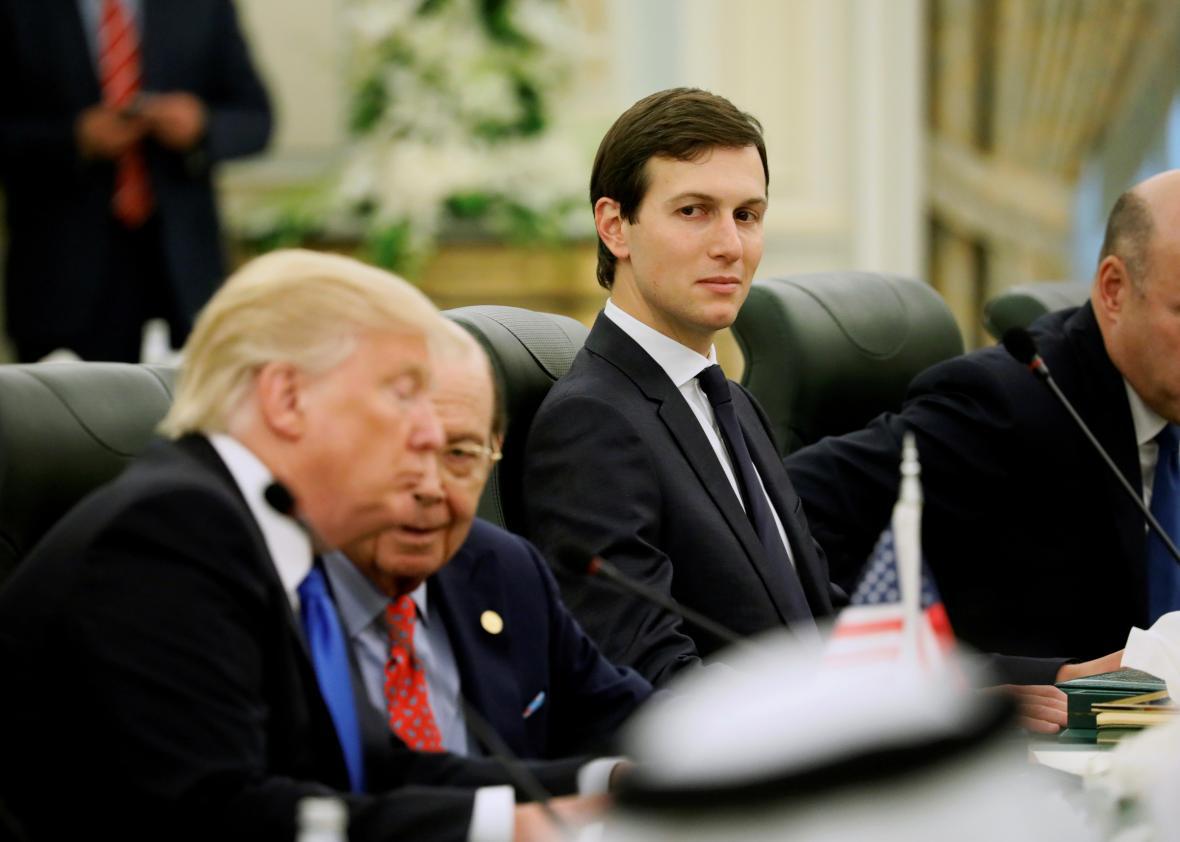Jared Kushner, President Donald Trump’s son-in-law and closest adviser, talked with the Russian ambassador in December about setting up a back channel of communications between Washington and the Kremlin. The goal seems to have been to use Russian diplomatic facilities for these talks before Trump would be sworn in, so any discussions wouldn’t be monitored, according to the Washington Post, which was the first to report the story that was later confirmed by numerous outlets.
The idea to set up this secret channel of communications was discussed at Trump Tower during a meeting between Kushner, Russian Ambassador Sergey Kislyak, and Michael Flynn, who later became National Security Adviser before he was fired. Although Reuters had already reported that Flynn and Kislyak discussed setting up a secret channel of communication, the Post was first to reveal that Kushner was part of that conversation as well. It isn’t clear who proposed the communications channel, according to the New York Times, but the goal was to have Flynn discuss directly with senior officials in Moscow about Syria and other issues.
Although the back channel was never actually set up, it’s a reminder of why the FBI has taken a particular interest in Kushner as it investigates possible ties between the Trump campaign and Russia. For now though, while investigators are looking into Kushner’s activities, he is not the subject of a criminal investigation. For some, the whole thing is a stark example of how Trump’s closest advisers got to Washington without much experience and lots of naïvete. The Post explains:
The FBI closely monitors the communications of Russian officials in the United States, and it maintains a nearly constant surveillance of its diplomatic facilities. The National Security Agency monitors the communications of Russian officials overseas.
Current and former U.S. intelligence officials said that although Russian diplomats have secure means of communicating with Moscow, Kushner’s apparent request for access to such channels was extraordinary.
“How would he trust that the Russians wouldn’t leak it on their side?” said one former senior intelligence official. The FBI would know that a Trump transition official was going in and out of the embassy, which would cause “a great deal” of concern, he added. The entire idea, he said, “seems extremely naive or absolutely crazy.”
Separately, Reuters reported that Kushner had at least three contacts with Kislyak that hadn’t been disclosed. At least two of them were phone calls last year. At these calls, Kislyak didn’t just discuss security issues like Syria but also the need to improve relations between Russia and the United States following the sanctions imposed by President Barack Obama. That has led investigators to wonder whether Kislyak or any other official suggested that getting rid of economic sanctions could prove financially beneficial to Trump’s associates.
Through his attorney, Kushner said he didn’t remember any calls with Kislyak. The lawyer also said Kushner is ready to talk to investigators and Congress about his contacts with Russian officials.
